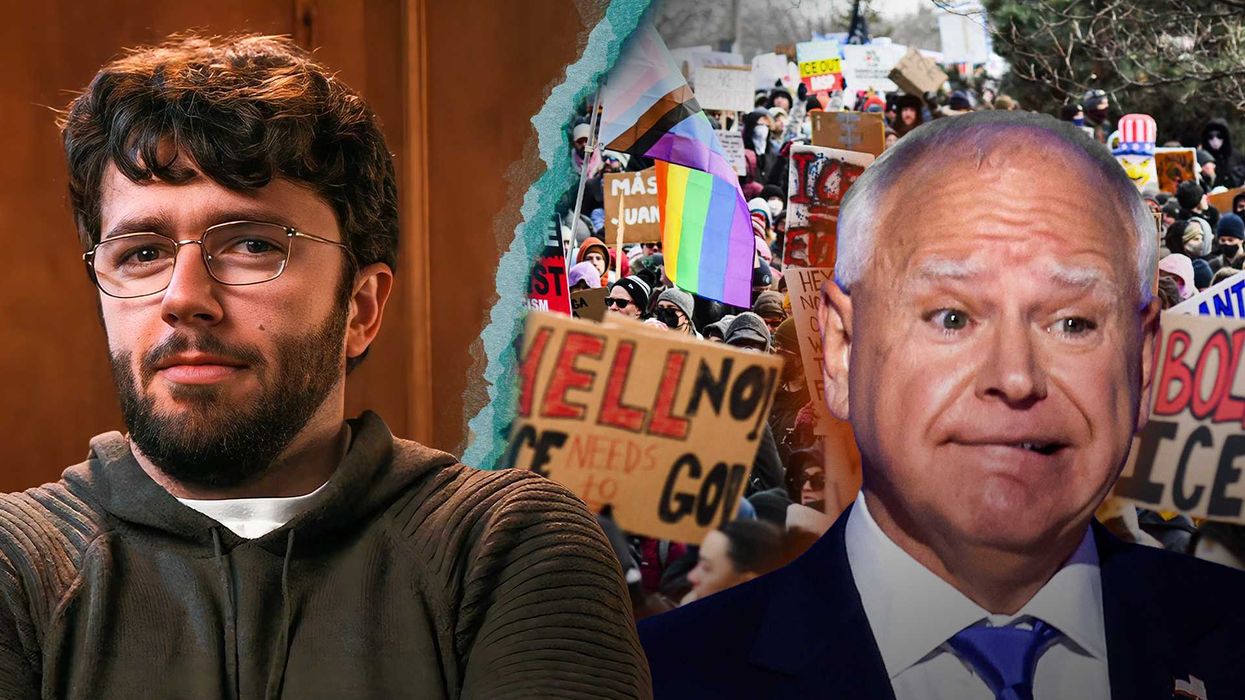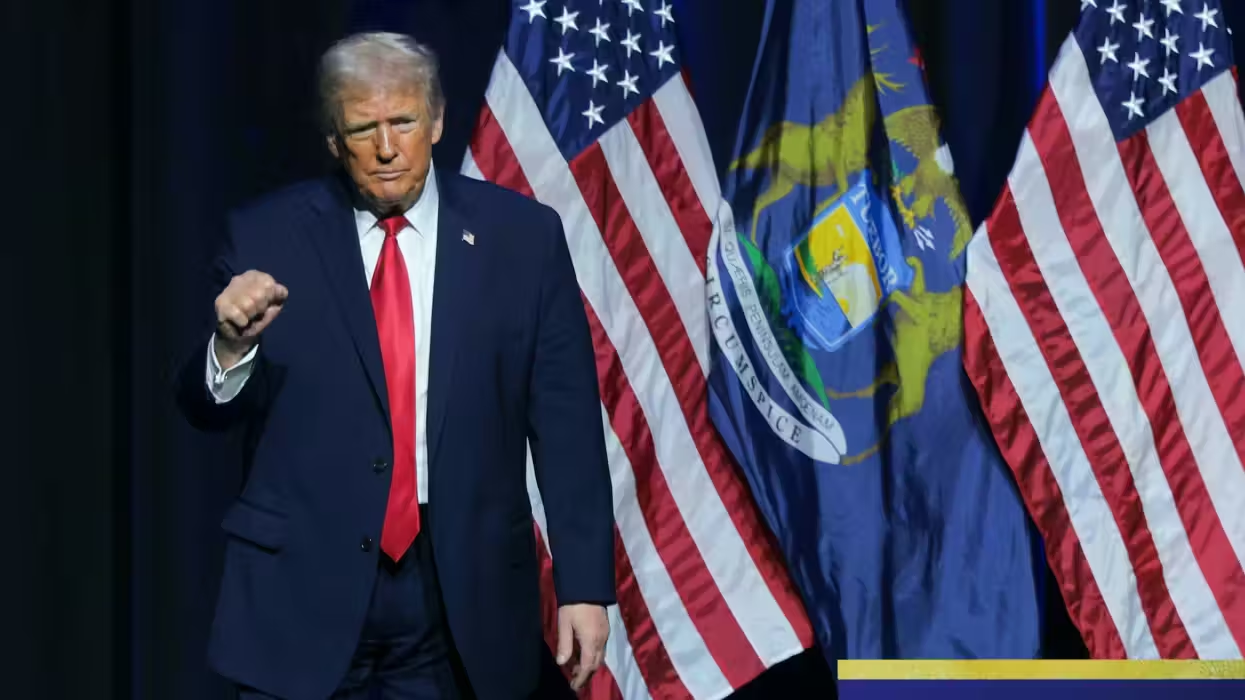
© 2026 Blaze Media LLC. All rights reserved.
UN Health Group Plotting Massive Global Tax on Tobacco, Without U.S. Input
October 01, 2014
"Increasing tobacco taxes generally further increases government revenues..."
The World Health Organization will meet behind closed doors in Russia later this month to vote on a proposal that would encourage most of world's countries to impose a huge tax on tobacco, one that would double or even triple the price of cigarettes and threaten real injury to U.S. tobacco growers in Kentucky and North Carolina.
The move will be made without any U.S. government observers, as they are expected to boycott the meeting in protest of Russia's annexation of Crimea, according close observers of the process. And the proposal is expected to pass without any public record of how each country voted.
 Members of the World Health Organization will meet in Russia later this month and is expected to adopt a recommendation to dramatically increase tobacco taxes in most countries around the world.
Members of the World Health Organization will meet in Russia later this month and is expected to adopt a recommendation to dramatically increase tobacco taxes in most countries around the world.
Photo credit: Shutterstock
While the vote will take place in secrecy, the resulting tax hike will likely lead to noticeable damage to U.S. tobacco companies and tobacco growers. The U.S. is one of the world's largest tobacco producers, and companies from around the world source tobacco from the United States.
Without any U.S. input, the livelihoods of U.S. workers will be threatened by a global tax that at least one prominent economist says will shut down sales of U.S. cigarettes and likely lead to underground, illegal trade in these products.
The WHO, which is the arm of the United Nations that deals with health issues, will meet in Moscow the week of October 13 for the sixth meeting of the Framework Convention on Tobacco Control. The meeting will consider the adoption of a new article to that convention, which deals with "tobacco control."
The group counts 179 countries as members, and an agreement to impose the new tax would mean higher excise taxes on cigarettes in most of the world's countries. However, the U.S. is among the group of countries that has not ratified the convention, along with others such as Argentina and Switzerland.
According to a draft of the article, the group sees a tax hike on tobacco as a change that would create a disincentive to smoke, and raise revenue for governments at the same time.
"Effective taxes on tobacco products that lead to higher real consumer prices (inflation-adjusted) are desirable because they lower consumption and prevalence, and thereby in turn reduce mortality and morbidity and improve the health of the population," according to the draft.
"Effective tobacco taxes contribute significantly to state budgets," it reads. "Increasing tobacco taxes generally further increases government revenues, as the increase in tax normally outweighs the decline in consumption of tobacco products."
But while the group proudly makes these claims, it buries the actual recommended tax level in a footnote to a paragraph dealing with what tax rates should apply.
That paragraph says sovereign countries have the right to determine their own tax levels, and that there is "no single optimal level of tobacco taxes" that applies to all. Only in the footnote to that paragraph on page 12 does the group make clear its recommendation by citing a WHO technical manual:
"(Recommends that tobacco excise taxes account for at least 70 percent of the retail prices for tobacco products,)" it reads.
According to a new book by economist Arthur Laffer, making sure that excise taxes account for 70 percent of the retail price of a pack of cigarettes would dramatically raise prices around the world. In India, for example, prices would rise from $2.42 to $9.88 a pack, a 309 percent increase.
Other countries that would see price hikes above 100 percent include Indonesia, Ukraine, China, Peru and Colombia. Laffer says these tax hikes would not automatically increase government revenues, and instead would shut down trade in legitimate products.
"By simulating the impact of a global minimum excise incidence of 70 percent, it becomes even more clear that this WHO recommendation is far from best practice," Laffer wrote in his book, Handbook of Tobacco Taxation: Theory and Practice. "[I]t would lead to draconian and arbitrary tax increases in almost every country, and at the same time more than triple tax and price differences between countries, providing further incentives for illicit trade."
Laffer stressed in his book that he is "hostile" toward cigarettes, but said his disapproval of the product doesn't mean countries should pursue irrational tax policies that drive people to illegal trade.
"In other words, you don't want to tax cigarettes to the point that consumers are no longer purchasing cigarettes from tobacco companies and instead are smuggling, dealing in illicit trade, etc," he wrote.
Read a copy of the hard-to-find tobacco tax proposal here:
Want to leave a tip?
We answer to you. Help keep our content free of advertisers and big tech censorship by leaving a tip today.
Want to join the conversation?
Already a subscriber?
more stories
Sign up for the Blaze newsletter
By signing up, you agree to our Privacy Policy and Terms of Use, and agree to receive content that may sometimes include advertisements. You may opt out at any time.
Related Content
© 2026 Blaze Media LLC. All rights reserved.
Get the stories that matter most delivered directly to your inbox.
By signing up, you agree to our Privacy Policy and Terms of Use, and agree to receive content that may sometimes include advertisements. You may opt out at any time.






